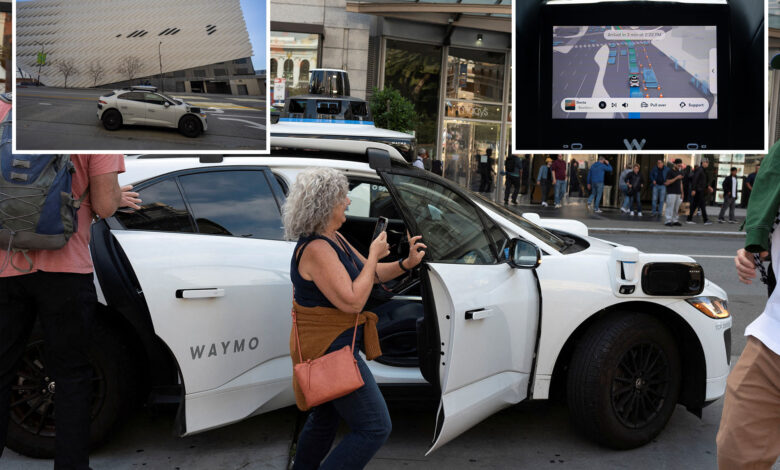Driverless Waymo taxis may be available for purchase in the future

Waymo’s self-driving robotaxis may be available for personal ownership in the future, Alphabet CEO Sundar Pichai said.
The vehicles are currently the only driverless robotaxis that collect fares on rides in the US, operating a fleet of 700 vehicles, with the majority based in San Francisco.
“There is future optionality for personal ownership,” Pichai said during a post-earnings call on Thursday, though he did not provide a timeline or details on the potential sale price.
Waymo’s presence has been growing, completing more than 250,000 fully autonomous paid rides each week, according to Alphabet. The robotaxis are on the road in San Francisco, Phoenix, Los Angeles and Austin, with plans to expand to Atlanta, Miami and Washington, DC.
“This is probably the first question I’ve gotten on an earnings call on Waymo,” Pichai joked, after being asked about personal ownership. “It’s a sign of progress.”
Google does not manufacture the vehicles itself, instead relying on partnerships with Uber, vehicle financing site Moove and major automakers like Hyundai, Jaguar and Chinese EV maker Zeekr.
The futuristic driverless taxis rely on a combination of cameras and pricey LiDAR sensors to create maps of the road.
Rival Tesla, which plans to launch a pilot robotaxi program in June, uses only cameras and artificial intelligence for its self-driving cars, allowing it to keep costs low – and competitors at bay, according to CEO Elon Musk.
“Teslas probably cost a quarter, 20%, of what a Waymo costs and made in very high volume,” Musk said on Tuesday during an earnings call.
“I don’t see anyone being able to compete with Tesla at present,” he added.
The robotaxi’s launch in June, which is set to take place in Austin, Tex., will likely be limited, since it’s just a pilot program to start.
But Musk said a more widespread rollout of the taxis is coming soon.
“I predict there will be millions of Teslas operating autonomously – fully autonomously – in the second half of next year,” he said during the call.
Tesla also aims to launch its robotaxi service in several other US states this year. Analysts have warned this could be a tall order, since its self-driving technology has struggled in more complex scenarios, like rough weather, tricky intersections and unpredictable pedestrian behavior.
Musk’s automaker will be dipping its toes into new legal waters with the robotaxis, since it has previously only dealt with partially autonomous driving.
It has long blamed accidents involving its Autopilot and Full Self-Driving systems on drivers, arguing it warns them to stay alert and ready to take the wheel.
Last December, General Motors exited its version of the fully autonomous vehicles, a money-losing business called Rival Cruise.
The automaker paid a $500,000 criminal fine after it admitted to misleading federal investigators over a 2023 crash involving one of the self-driving vehicles.
With Post wires




